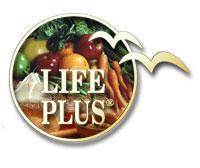|
|
Constipation is passage of small amounts of hard, dry bowel movements, usually fewer than three times a week. People who are constipated may find it difficult and painful to have a bowel movement. Other symptoms of constipation include feeling bloated, uncomfortable, and sluggish.
Many people think they are constipated when, in fact, their bowel movements are regular.
|
|
|
For example, some people believe they are constipated, or irregular, if they do not have a bowel movement every day. However, there is no right number of daily or weekly bowel movements. Normal may be three times a day or three times a week depending on the person. In addition, some people naturally have firmer stools than others
At one time or another almost everyone gets constipated. Poor diet and lack of exercise are usually the causes. In most cases, constipation is temporary and not serious. Understanding causes, prevention, and treatment will help most people find relief.
According to the 1991 National Health Interview Survey, about 4 1/2 million people in the United States say they are constipated most or all of the time. Those reporting constipation most often are women, children, and adults age 65 and over. Pregnant women also complain of constipation, and it is a common problem following childbirth or surgery.
Constipation is the most common gastrointestinal complaint in the United States, resulting in about 2 million annual visits to the doctor. However, most people treat themselves without seeking medical help, as is evident from the $725 million Americans spend on laxatives each year.
What Causes Constipation?
To understand constipation, it helps to know how the colon (large intestine) works. As food moves through it, the colon absorbs water while forming waste products, or stool. Muscle contractions in the colon push the stool toward the rectum. By the time stool reaches the rectum, it is solid because most of the water has been absorbed. (See figure 1.)
The hard and dry stools of constipation occur when the colon absorbs too much water. This happens because the colon's muscle contractions are slow or sluggish, causing the stool to move through the colon too slowly. Figure 2 lists the most common causes of constipation.
Common Causes of Constipation
- Not enough fiber in diet
- Not enough liquids
- Lack of exercise
- Medications
- Irritable bowel syndrome
- Changes in life or routine such as pregnancy, older age, and travel
- Abuse of laxatives
- Ignoring the urge to have a bowel movement
- Specific diseases such as multiple sclerosis and lupus
- Problems with the colon and rectum
- Problems with intestinal function (Chronic idiopathic constipation).
|
|
Figure 2
|
The most common cause of constipation is a diet low in fiber found in vegetables, fruits, and whole grains and high in fats found in cheese, eggs, and meats. People who eat plenty of high-fiber foods are less likely to become constipated.
Fiber--soluble and insoluble--is the part of fruits, vegetables, and grains that the body cannot digest. Soluble fiber dissolves easily in water and takes on a soft, gel-like texture in the intestines. Insoluble fiber passes almost unchanged through the intestines. The bulk and soft texture of fiber help prevent hard, dry stools that are difficult to pass.
On average, Americans eat about 5 to 20 grams of fiber daily, short of the 20 to 35 grams recommended by the American Dietetic Association. Both children and adults eat too many refined and processed foods in which the natural fiber is removed.
A low-fiber diet also plays a key role in constipation among older adults. They often lack interest in eating and may choose fast foods low in fiber. In addition, loss of teeth may force older people to eat soft foods that are processed and low in fiber.
Liquids like water and juice add fluid to the colon and bulk to stools, making bowel movements softer and easier to pass. People who have problems with constipation should drink enough of these liquids every day, about eight 8-ounce glasses. Other liquids, like coffee and soft drinks, that contain caffeine seem to have a dehydrating effect.
Lack of exercise can lead to constipation, although doctors do not know precisely why. For example, constipation often occurs after an accident or during an illness when one must stay in bed and cannot exercise.
Pain medications (especially narcotics), antacids that contain aluminum, antispasmodics, antidepressants, iron supplements, diuretics, and anticonvulsants for epilepsy can slow passage of bowel movements.
Irritable Bowel Syndrome (IBS)
Some people with IBS, also known as spastic colon, have spasms in the colon that affect bowel movements. Constipation and diarrhea often alternate, and abdominal cramping, gassiness, and bloating are other common complaints. Although IBS can produce lifelong symptoms, it is not a life-threatening condition. It often worsens with stress, but there is no specific cause or anything unusual that the doctor can see in the colon.
Changes in Life or Routine
During pregnancy, women may be constipated because of hormonal changes or because the heavy uterus compresses the intestine. Aging may also affect bowel regularity because a slower metabolism results in less intestinal activity and muscle tone. In addition, people often become constipated when traveling because their normal diet and daily routines are disrupted.
Myths about constipation have led to a serious abuse of laxatives. This is common among older adults who are preoccupied with having a daily bowel movement.
Laxatives usually are not necessary and can be habit-forming. The colon begins to rely on laxatives to bring on bowel movements. Over time, laxatives can damage nerve cells in the colon and interfere with the colon's natural ability to contract. For the same reason, regular use of enemas can also lead to a loss of normal bowel function.
Ignoring the Urge to Have a Bowel Movement
People who ignore the urge to have a bowel movement may eventually stop feeling the urge, which can lead to constipation. Some people delay having a bowel movement because they do not want to use toilets outside the home. Others ignore the urge because of emotional stress or because they are too busy. Children may postpone having a bowel movement because of stressful toilet training or because they do not want to interrupt their play.
Diseases that cause constipation include neurological disorders, metabolic and endocrine disorders, and systemic conditions that affect organ systems. These disorders can slow the movement of stool through the colon, rectum, or anus. Figure 3 lists the diseases that cause constipation.
Diseases That Cause Constipation
Neurological disorders that may cause constipation include:
- Multiple sclerosis
- Parkinson's disease
- Chronic idiopathic intestinal pseudo-obstruction
- Stroke
- Spinal cord injuries.
Metabolic and endocrine conditions include:
- Diabetes
- Underactive or overactive thyroid gland
- Uremia.
Systemic disorders include:
- Amyloidosis
- Lupus
- Scleroderma.
Problems with the Colon and Rectum
Intestinal obstruction, scar tissue (adhesions), diverticulosis, tumors, colorectal stricture, Hirschsprung's disease, or cancer can compress, squeeze, or narrow the intestine and rectum and cause constipation.
Problems with Intestinal Function (Chronic Idiopathic Constipation)
Also known as functional constipation, chronic idiopathic (of unknown origin) constipation is rare. However, some people are chronically constipated and do not respond to standard treatment. This chronic constipation may be related to multiple problems with hormonal control or with nerves and muscles in the colon, rectum, or anus. Functional constipation occurs in both children and adults and is most common in women.
Colonic inertia and delayed transit are two types of functional constipation caused by decreased muscle activity in the colon. These syndromes may affect the entire colon or may be confined to the left or lower (sigmoid) colon.
Functional constipation that stems from abnormalities in the structure of the anus and rectum is known as anorectal dysfunction, or anismus. These abnormalities result in an inability to relax the rectal and anal muscles that allow stool to exit.
Note: Information in this article was taken from the National Digestive Diseases Information Clearinghouse (NDDIC) is a service of the National Institute of Diabetes and Digestive and Kidney Diseases (NIDDK). The NIDDK is part of the National Institutes of Health under the U.S. Department of Health and Human Services. Click Here for more Information.
|




 Meet Alexandria as She Presents a Special Skin Care Beauty Feature!
Meet Alexandria as She Presents a Special Skin Care Beauty Feature!






